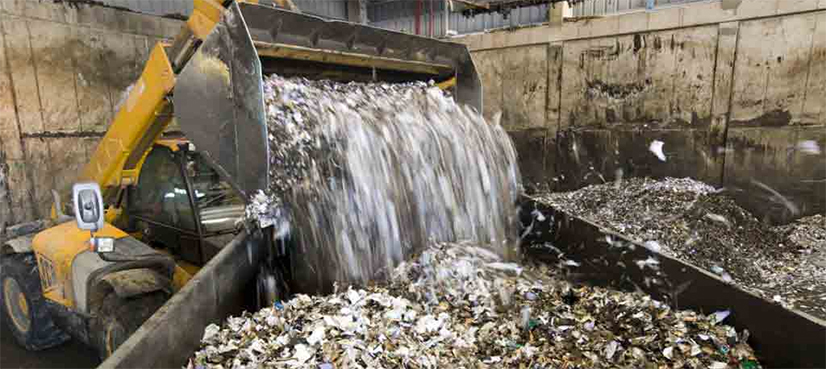Solid Waste Management: a sustainable solution for better future
Growing up in metropolitan cities of Pakistan, at one time or the other in our lives, We all have fancied the season of monsoon.
Be it tasty samosas or a hot cup of tea along with our favorite book, the monsoon is the time of the year, we all eagerly wait for.
Our favorite characters from novels, make monsoon more enjoyable and relevant to us by living our fantasies.
However, the alarming situation of solid waste of our country has burned our fantasies to ashes. Monson as a season of love and laughter that novels portrayed once, has become a nightmare for us.
Except for the capital city, we have the worst drainage system in all our major cities.
In most cities, rain temporarily halts all human activities.News of people dying by falling into gutters, electric shocks, and infectious diseases outbreaks in rain is not new. Hence, in real life monsoon means overflowing gutters, electrocution people, falling billboards, heavy traffic jams, and heaps of solid waste(SW) lying on the roadside.
Last year, only in Karachi more than 16 people died in rain.The reason for this misery is not the monsoon, but the improper waste disposal habits.
Each year, in aftermath of monsoon disaster, people, already weary of the crippled system can be seen protesting against the government. Political parties are busy in playing, their favorite, blame games, but none of them provide any practical solution to the problem at hand. However, everything goes back to normal within few days.
Political parties are busy in playing, their favorite, blame game, but none of them provide any practical solution to the problem at hand. However, everything goes back to normal within few days.
Lets think for a while, is government responsible for everything that goes wrong in our lives? Once one of my professors at my university said that do criticize people where they deserve, but do not blame others for your own laziness. Unfortunate as it seems, we have been doing this for decades even without realizing it.
Solid waste is defined as solid or semi-solid municipal, industrial, and hospital waste, construction and demolition debris, mining residues, sewage sludge, and agricultural refuse.Solid waste management (SWM) is a big issue and all around the world, it is dealt with extreme priority.
WHAT WE NEED TO KNOW ABOUT SW?
SW generation is 1.3 billion tons per year, globally. This figure is expected to grow double in size by year ends 2025. Whereas, the rate of collecting waste is significantly low, especially in developing and low-income countries.
In India and Pakistan, it is as slow as 70%.Merely 35% of the collected waste is processed through a proper recycling process. While the rest ends up in open dumps resulting into landfills. These high piles of solid waste become the source of breeding sites for diseases causing bacteria. WHO reported that each year nearly 12.6 million people die either working or living in the polluted environment. This makes it 1 in 4 deaths reported by WHO.
These high piles of solid waste become the source of breeding sites for diseases causing bacteria. WHO reported that each year nearly 12.6 million people die either working or living in the polluted environment. This makes it 1 in 4 deaths reported by WHO.
With annual GDP growth rate of only 4.71%, and annual population growth rate of 2.2%, the municipal waste collection services are highly constrained in our country. For instance, Karachi with more than 16 million population generates 9,000 tons solid waste per day of which only 50% is collected.This leaves the country in dire need of the sustainable development of the solid waste management system.
HOW WE CAN MANAGE SOLID WASTE AT THE HOUSEHOLD LEVEL?
While working on my Final year report on Solid Waste Generation and Management in my university, I realized how deep this issue was. With improper waste disposal, we aren’t only putting many lives at risk by throwing garbage in open dumps, but also devaluing the worth of garbage that can be sold to recyclers.
Assortment at source by consumers is one of the many ways of solid waste management at the household level. In this process, the color coded bins are used. As it requires the participation of all family members, it is always a pre-requisite to educate all members regarding hazards of improper disposing of garbage.
WHAT YOU CAN DO?
To have a better living environment for upcoming generations, it is crucial to pay attention towards this seemingly trivial but grave issue. In Islamabad, companies such as Waste Bustersand CDA collect garbage. Whereas, in cities such as Lahore and Rawalpindi waste management is contracted out to foreign companies. These companies have been operating for a while, but due to Inappropriate and inadequate solid waste management at the household level, we have not seen any significant decrease in the heaps of garbage.
At the household level, we need to make sure that our solid waste is disposed of properly. We need to take action now, to have a better future.

